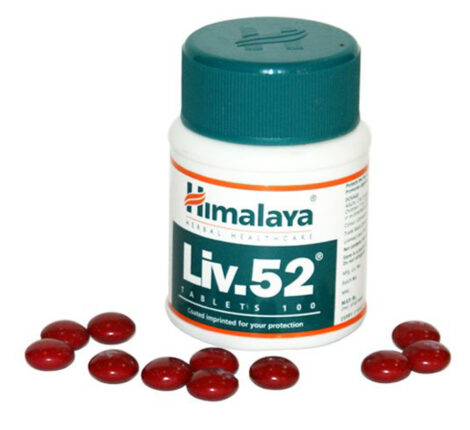Injunctions against IP Infringement
Introduction
In India, intellectual property rights are governed by a different set of laws. For instance, the Trademarks Act, 1999, the Copyrights Act, 1957, the Geographical Indications of Goods (Registration and Protection) Act, 1999, the Patents Act, 1950, etc.
In each of these laws, the Court has different rights and remedies to ensure the protection of intellectual properties. One such remedy commonly sought by aggrieved persons in cases of intellectual property infringement before a court is an injunction.
Injunction
An injunction is a preventive relief sought by a party requesting the Court to direct the opposite party to forbid from taking action through any means. The presumption is that if the other party carries out such an act, it would result in a breach of law and affect the rights and interests of the aggrieved party.
For intellectual property protection, it is almost always the person aggrieved due to someone else’s unauthorized use of his intellectual property (trademark, patent, copyright, etc.). Thus, Courts grant an injunction if there is an infringement of intellectual property rights which helps in restraining and forbidding the other party from continuing such violation. It is crucial to note that under intellectual property laws, there are many remedies, and injunction is only one of them.
Under the Indian laws, an injunction relevant to intellectual property rights can be found mainly within the Civil Procedure Code, 1908, under Order 39 (Rules 1 to 5). Also, under the Specific Relief Act, 1963, under sections 36 to 42.
Also read: Remedies against Trademark Infringement
Let us now look at the various types of injunctions.
Types of Injunction
Mainly, there are two types of injunctions: interim and permanent, defined under section 37 of the Specific Relief Act, 1963.
Interim Injunction
Order 39, Rules 1 and 2 of the Code of Civil Procedure, 1908, deal with interim injunction. This injunction is granted while the suit has not been decided and is usually for immediate relief and protection of the plaintiff’s interest and IP. This injunction mainly protects the interest in intellectual property and restrain repetition or continuance of breach. This type of injunction only continues until the further order of the Court or a specific period.
The Court must decide prima facie find that the plaintiff, claiming an interim injunction, might suffer an irreparable or considerable loss if not granted the injunction order.
An interim injunction can be claimed as a quia timet injunction when there is a possibility of a breach of the plaintiff’s rights by some other person, especially in cases of copyright infringement, as stated in Super Cassette Industries Ltd. v. Myspace Inc.[1]
If the person against whom the Court issues an interim injunction fails to comply, the aggrieved party can approach the Court through Rule 2A of Order 39, the Code of Civil Procedure, 1908. In such circumstances, the Court may order attachment of property of the person disobeying or breaching an injunction or even order detention of such person in civil prison.
Permanent Injunction
The decree of the Court always grants the permanent injunction, which is decided after adjudicating the suit on its merits, and it is conclusive. The permanent injunction order, also known as the perpetual injunction, is mentioned under section 38 of the Specific Relief Act, 1963 and is usually granted to prevent the breach of an obligation, especially when the defendant is blatantly invading or infringing the plaintiff’s rights. Such injunction is necessary to avoid such breach. The plaintiff has to prove that the opposite party has violated his legal right to avail of this remedy. Even then, granting an injunction is always at the Court’s discretion.
Other than these two kinds of injunctions, the Court can also grant a mandatory injunction order. Such an injunction is granted to prevent the breach of an obligation by making it compulsory for the defendant to perform certain acts. The act is generally optimistic that puts an end to the infringement of the plaintiff’s rights. Section 39 of the Specific Relief Act, 1963 deals with a mandatory injunction. Although, for granting a mandatory injunction, the plaintiff has to establish a greater degree of possible harm, as held by the Supreme Court in D.C. Warden v. C.S. Warden[2].
Also read: Are Keywords Considered For Trademark Infringement?
Whether interim or permanent, both of these injunctions can also be ex-parte in nature. Although, in general, due to the principles of natural justice, ex-parte injunction orders are not granted very often, in some exceptional cases, they can be granted. This is especially true if the quantum of possible irreparable loss is high or when the other party has failed to appear before the Court despite giving a fair hearing opportunity. Usually, such an injunction is interim or only valid until the Court’s subsequent order, as held by the Supreme Court in Morgan Stanley Mutual Fund v. Kartick Das[3].
Conclusion
Although injunctions are mainly of two kinds (interim and permanent), the Court may also grant other forms of injunctions at its discretion. They are prohibitive and seek to protect the rights and interests of the aggrieved party and their intellectual property. It is important to note that although an injunction is a commonly sought remedy in cases of intellectual property infringement, the aggrieved party has to prove its rights and a probability of an irreparable loss. Thus, it is crucial to understand what type of injunction one seeks from the Court by weighing together intellectual property infringement, possible loss, and urgency for a legal remedy.
[1] Super Cassette Industries Ltd. v. Myspace Inc., CS (OS) No. 2682/2008.
[2] D.C. Warden v. C.S. Warden, 1990 (2) SCC 117.
[3] Morgan Stanley Mutual Fund v. Kartick Das, (1994) 4 SCC 225.
References:
- The Specific Relief Act, 1963
- The Code of Civil Procedure, 1908
- Super Cassette Industries Ltd. v. Myspace Inc., CS (OS) No. 2682/2008
- D.C. Warden v. C.S. Warden, 1990 (2) SCC 117
- Morgan Stanley Mutual Fund v. Kartick Das, (1994) 4 SCC 225
Authored by: Anurag Kushwaha; Student, Department of Law, PIMR, Indore
Disclaimer: This article is intended to provide general guidance to the subject matter. It does not contain legal advice. For any specific advice/corrections, write to [email protected]
© ZEST IP




